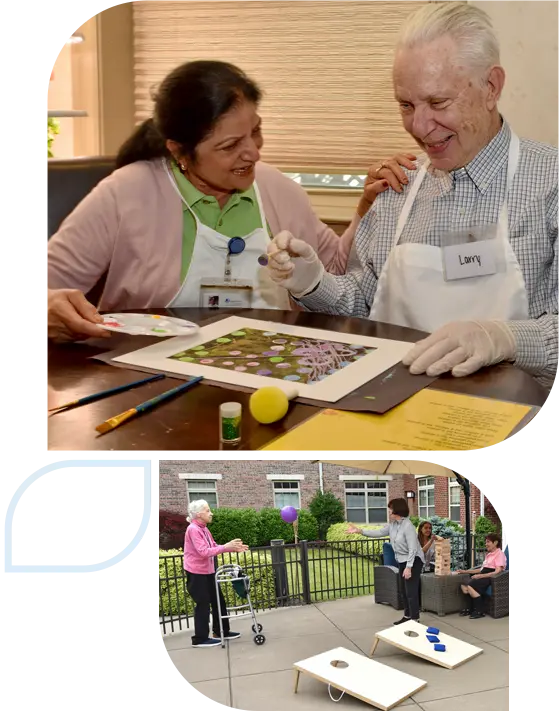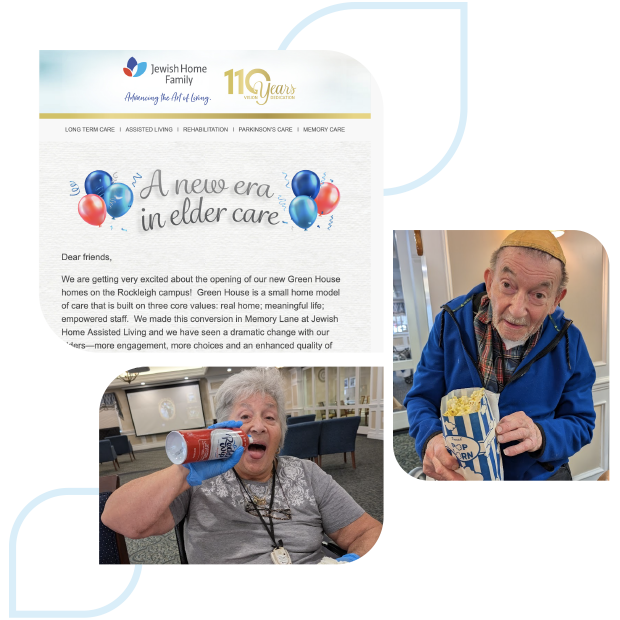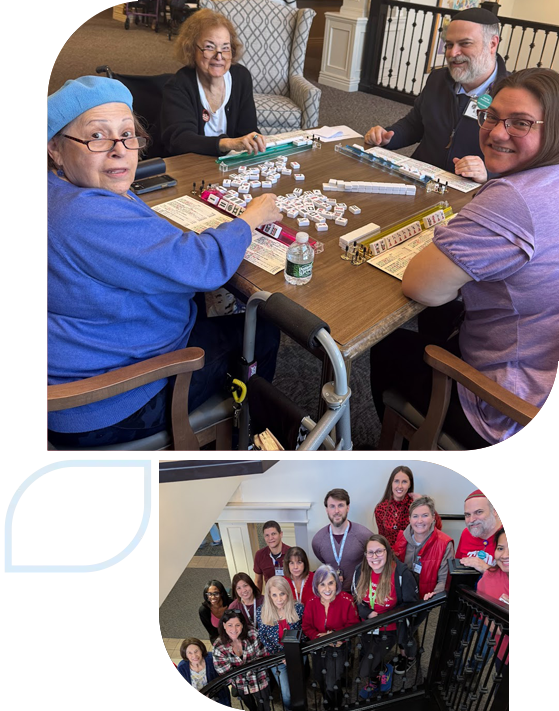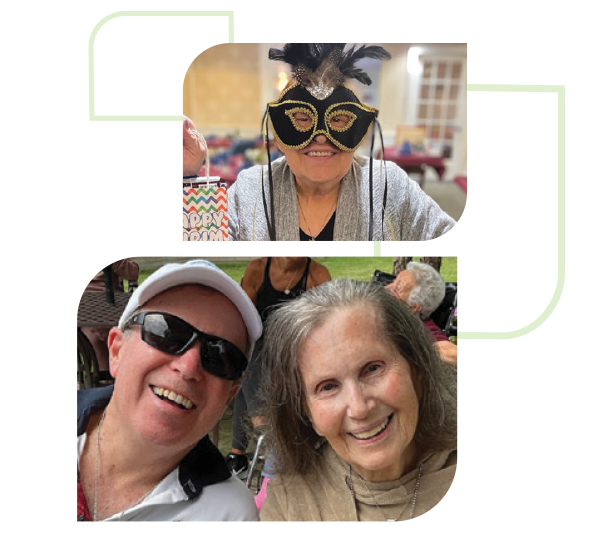New Milford Assisted Living: Why Jewish Home Family Is Worth The Drive, If You Live In New Jersey: Discover the value of Jewish Home Family’s New Jersey location for those seeking premier assisted living in the area
Discover how Jewish Home Family in the heart of New Jersey can provide unparalleled care and support for your loved ones in need of assisted living services. Our dedication to creating a warm and inviting environment ensures that residents feel at home and well-cared for at all times. With a focus on personalized care plans and compassionate staff members, we strive to make each individual feel valued and respected.
Location
Located in the vibrant state of New Jersey, Jewish Home Family offers easy access to a variety of amenities and services, making it a convenient choice for families seeking quality assisted living options. Situated in a bustling community, our facility is surrounded by lush greenery and scenic views, providing a peaceful and serene setting for residents to enjoy.
Accessibility
At Jewish Home Family, we understand the importance of accessibility for our residents. That’s why our facility is equipped with ramps and elevators to ensure that all individuals can move around freely and independently. Our team also provides transportation services for outings and appointments, offering a seamless experience for residents to stay connected with the community.
Jewish Home Family 10 Link Dr, Rockleigh, NJ 07647, United States, +12017841414
For more information – Click Here
Personalized Care Services
Personalized care services are tailored to meet the individual needs of residents, ensuring a high level of comfort and well-being. Here are some key points to consider:
- Customized Care Plans: Each resident receives a personalized care plan designed to address their specific requirements and preferences.
- Comprehensive Health Monitoring: Regular health assessments and monitoring help ensure that residents receive the appropriate level of care.
- Specialized Medical Services: Access to specialized medical services, such as physical therapy or occupational therapy, can greatly enhance the quality of care provided.
Furthermore, personalized care services aim to promote independence and autonomy among residents, empowering them to make choices about their daily lives. By fostering a sense of control and self-determination, individuals can maintain a higher quality of life and overall satisfaction.
Skilled Nursing and Rehabilitation
When considering skilled nursing and rehabilitation services, it is important to understand the level of care and therapy provided. Skilled nursing facilities offer round-the-clock medical attention and assistance for individuals recovering from surgeries, illnesses, or injuries.
Here are some aspects to consider:
- Therapeutic Techniques: Skilled nursing facilities employ a variety of therapeutic techniques such as physical therapy, occupational therapy, and speech therapy to aid in the recovery process.
- Medical Staff Expertise: These facilities have a team of experienced healthcare professionals including nurses, doctors, and therapists who specialize in different areas of rehabilitation.
- Personalized Care Plans: Each resident receives a personalized care plan tailored to their specific needs and goals for rehabilitation.
Additionally, skilled nursing facilities focus on providing a supportive and nurturing environment to promote healing and independence.
| Pros | Cons |
|---|---|
| 24/7 Medical Care | Costly for Some Individuals |
| Specialized Therapy Programs | Transitioning Back Home Can Be Challenging |
- Expert Tip: Stay actively engaged in your rehabilitation process by communicating openly with your healthcare team and participating in therapy sessions regularly.
- Quantitative Measurement: Success rates of rehabilitation programs can be measured through improvements in mobility, pain management, and overall quality of life.

Understanding Memory Care Support
Memory care support, also known as dementia care, is a specialized type of long-term care designed for individuals experiencing memory loss, cognitive decline, or Alzheimer’s disease. It provides a safe and structured environment with trained staff to assist residents in their daily activities.
When considering memory care support for a loved one, it’s essential to evaluate the following key aspects:
- Staff Training and Expertise
- Therapeutic Activities and Programs
- Security Measures and Safety Protocols
Memory care communities often offer personalized care plans tailored to each resident’s specific needs, focusing on maintaining their independence and quality of life. These communities strive to create a familiar and comforting environment that promotes engagement and social interaction.
In addition to assistance with daily tasks, memory care support may include cognitive therapies, sensory stimulation activities, and behavior management techniques. Staff members are trained to handle challenging behaviors with compassion and patience, ensuring the well-being of residents.
One of the key benefits of memory care support is the 24/7 supervision and monitoring provided to residents, offering families peace of mind knowing their loved ones are safe and cared for at all times.
Spiritual Enrichment Programs
Spiritual enrichment is a vital aspect of holistic well-being and can profoundly impact one’s quality of life. Engaging in meaningful spiritual practices can provide comfort, purpose, and a sense of connection to something greater than oneself. Here are some insightful perspectives on spiritual enrichment programs:
- Exploring diverse faith traditions through educational workshops and discussions can broaden one’s understanding of different belief systems.
- Participating in guided meditation sessions can help individuals cultivate inner peace and mindfulness, promoting emotional resilience.
- Attending religious services or spiritual gatherings can foster a sense of community and belonging, enhancing social support networks.
Moreover, incorporating spiritual practices into daily routines can contribute to stress reduction, improved coping mechanisms, and overall psychological well-being. Research has shown that individuals who engage in regular spiritual activities often experience lower levels of anxiety and depression.
Benefits of Spiritual Enrichment Programs:
- Enhanced sense of purpose and meaning in life
- Improved emotional regulation and resilience
- Strengthened social connections and support systems
By embracing spiritual enrichment programs, individuals can nurture their inner selves, find solace in times of adversity, and cultivate a deep sense of fulfillment and contentment.
Family Involvement and Support
When it comes to family connection in assisted living communities, the relationships between residents and their loved ones play a crucial role in overall well-being. Family involvement goes beyond mere visits; it entails active participation in the resident’s daily life, providing emotional support and companionship.
- Engage in meaningful conversations with the staff to stay informed about your loved one’s progress and needs.
- Attend family support groups to share experiences and gain valuable insights from others facing similar situations.
- Encourage your loved one to participate in community activities to foster social connections and reduce feelings of isolation.
Building a strong support network within the community can significantly enhance the quality of life for residents. It creates a sense of belonging and security, knowing that there are people who genuinely care and are there to offer assistance when needed.
- Regular family meetings can help in discussing any concerns or preferences related to the resident’s care plan.
- Collaborate with the care team to ensure that your loved one’s individual needs are met and that they receive personalized attention.
- Express gratitude and appreciation for the staff’s dedication and hard work in caring for your family member.









